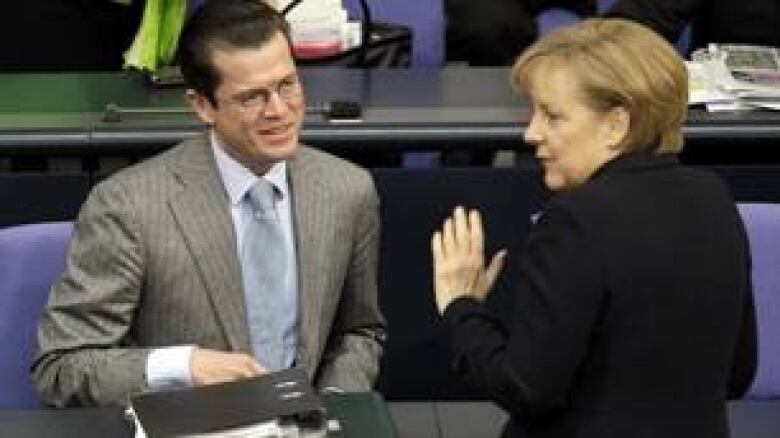Merkel fights public opposition to Afghan mission
Disapproval of Germany's involvement growing as deaths mount
German Chancellor Angela Merkel is trying to drum up support at home for the country's military mission in Afghanistan in an uphill battle against growing public resistance to it.

German troops will try to start handing over some responsibility to Afghan authorities in 2011, Merkel told her parliamentary colleagues Thursday. Germany's 4,500 soldiers in Afghanistan will stay as long as necessary, she said.
She said the conflict is "what is commonly known as warfare or war" terms she has so far avoided using.
"Each member of this house ... has known that," Merkel said. "We cannot ask our soldiers to be brave if we lack the courage to acknowledge what we have decided."
Public support for the German mission, which started after the Sept. 11, 2001, terrorist attacks, has eroded over recent months in the face of a rising death toll and the killing of Afghan civilians. A recent poll showed about 62 per cent of those polled want German troops to come home.
Disputed attacks
Seven German soldiers have been killed this month alone, bringing the overall death toll to 43 since the mission began. In addition, the German public was particularly upset at a Sept. 4, 2009, NATO air attack on two fuel trucks near the northern Afghan town of Kunduz that killed up to 142 people, many of them civilians. The attack was ordered by a German commander.
Defence Minister Karl-Theodor zu Guttenberg stressed in a parliamentary hearing Thursday that the attack should not have happened.
The danger at the time did not warrant bombing of the trucks and the surrounding people, Guttenberg said, adding that the German military "does not accept civilian victims lightly."
Germany's opposition Left Party has been one of the strongest opponents of the mission, lobbying for an immediate retreat.
"Those who demand to end the war now want to save the lives and well-being of everyone involved," Left Party politician Gregor Gysi said in Thursday's debate.
Merkel, who faces an important regional election May 9, rebuffed that, saying those demanding an immediate pullout were acting irresponsibly.
European security at stake: Merkel
Apart from Afghan security, Merkel insisted, what is at stake is the security of Germany, Europe and its partners worldwide. She pointed out that some of Afghanistan's neighbours, namely, Pakistan and China, already have nuclear weapons and others,such as Iran,could have them in the future.
"If we were to leave Afghanistan without a plan, that would immensely increase the danger that nuclear material could end up in the hands of extremist groups," she said.
Speakers for the government parties and for the largest opposition party, the Social Democrats, supported Merkel's stance.
Social Democratic leader Sigmar Gabriel said his party also thinks the Afghan military mission is still necessary, although he added that "obviously, we are not convincing the Germans at this point."












_(720p).jpg)


 OFFICIAL HD MUSIC VIDEO.jpg)
.jpg)



























































































